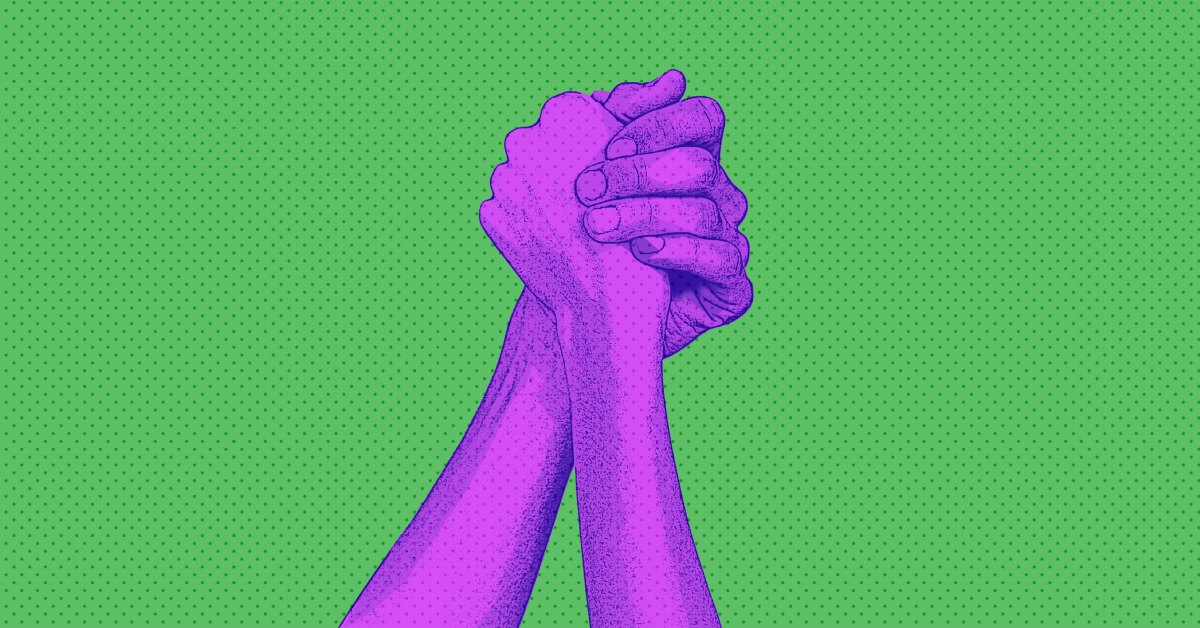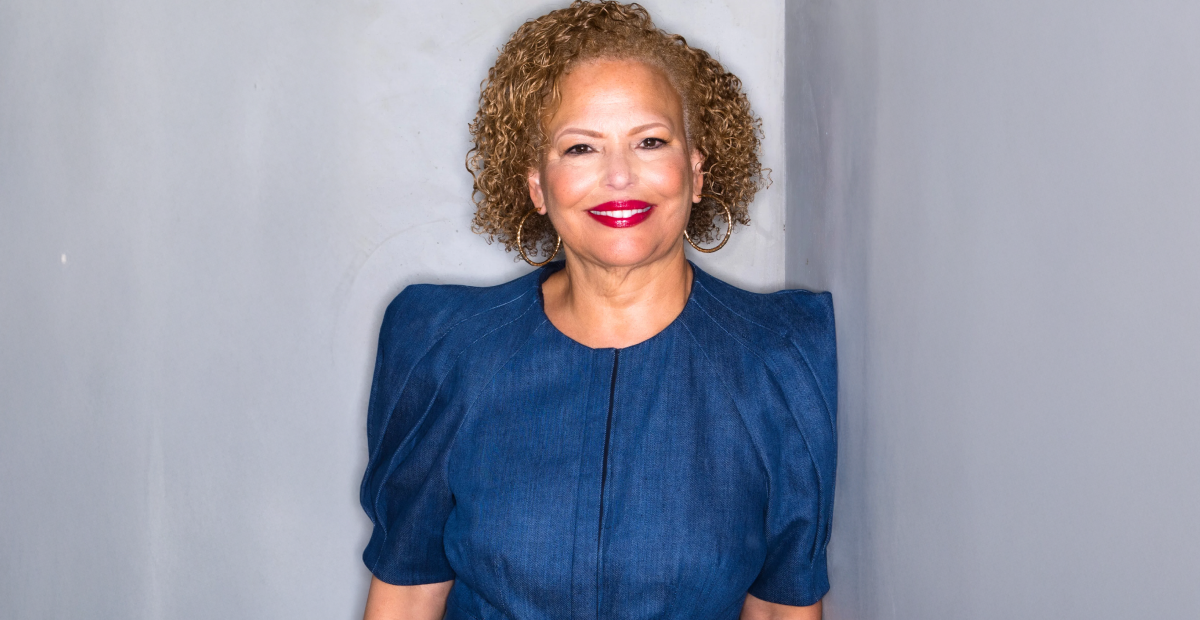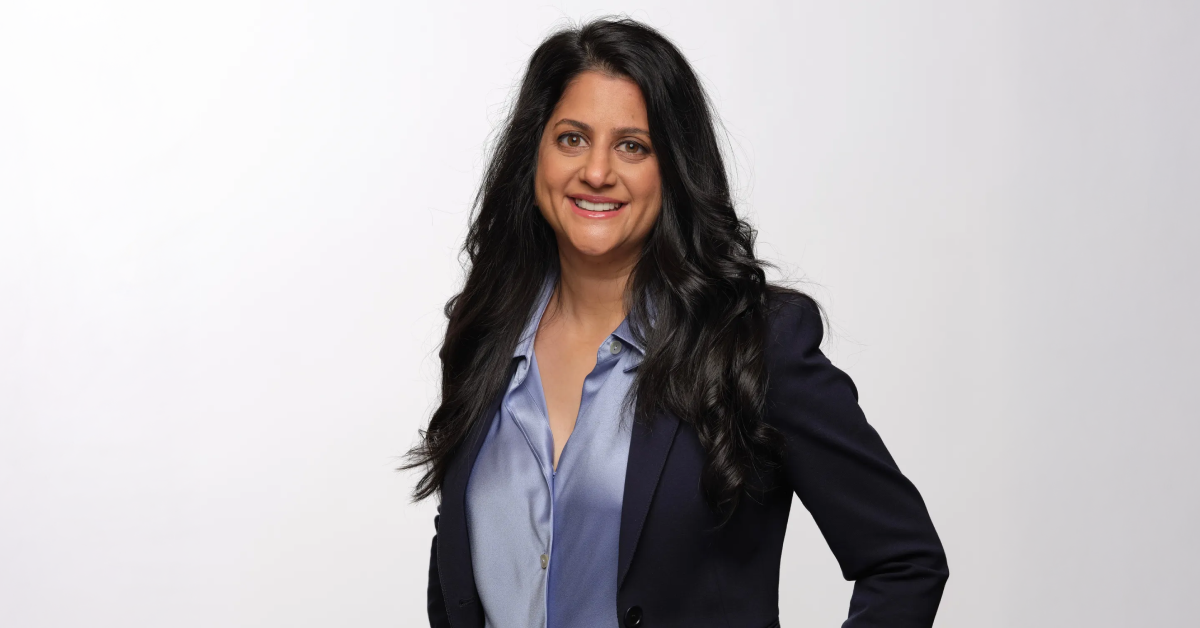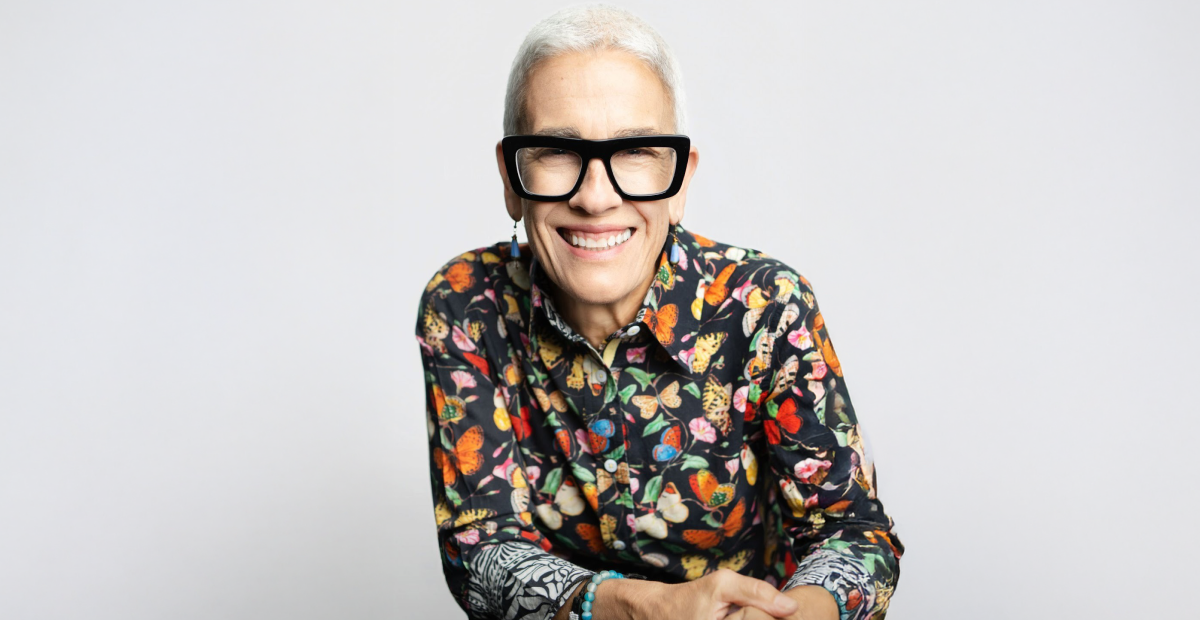When Chief Member Emily Quinlan was eight years old, her mom gave her a stern piece of career advice that, to this day, sticks with her.
“I remember so vividly, I was probably in third or maybe fourth grade, and we were standing in our kitchen,” she says. “My mom was angry, not at me but at whatever had happened at work. She looked down at me and said, ‘Whatever career path you take, whatever industry you go into, you have to make sure you go into sales. That way, you’ll be judged just off of what you sell, and not the fact that you're a woman.’”
As the daughter of an executive working in the insurance field, Emily didn’t know then that she would follow in her mother’s footsteps. But today, as Vice President at Alliant Insurance Services, the 40-year-old says she finally understands why her mom’s advice was so critical. Like many industries filled with gender bias and discrimination, the insurance field is no different. While there are currently more women than men working entry-level jobs in insurance, recent data shows that men still outnumber women two to one in leadership roles.
This Mother’s Day, Emily and her mom, fellow Chief Member Marilyn Quinlan, who joined Alliant Insurance Services as Executive Vice President two years after Emily in 2021, share how they’ve leaned on each other’s intergenerational wisdom to navigate their careers. And how they each overcame bias to still rise up and lead.
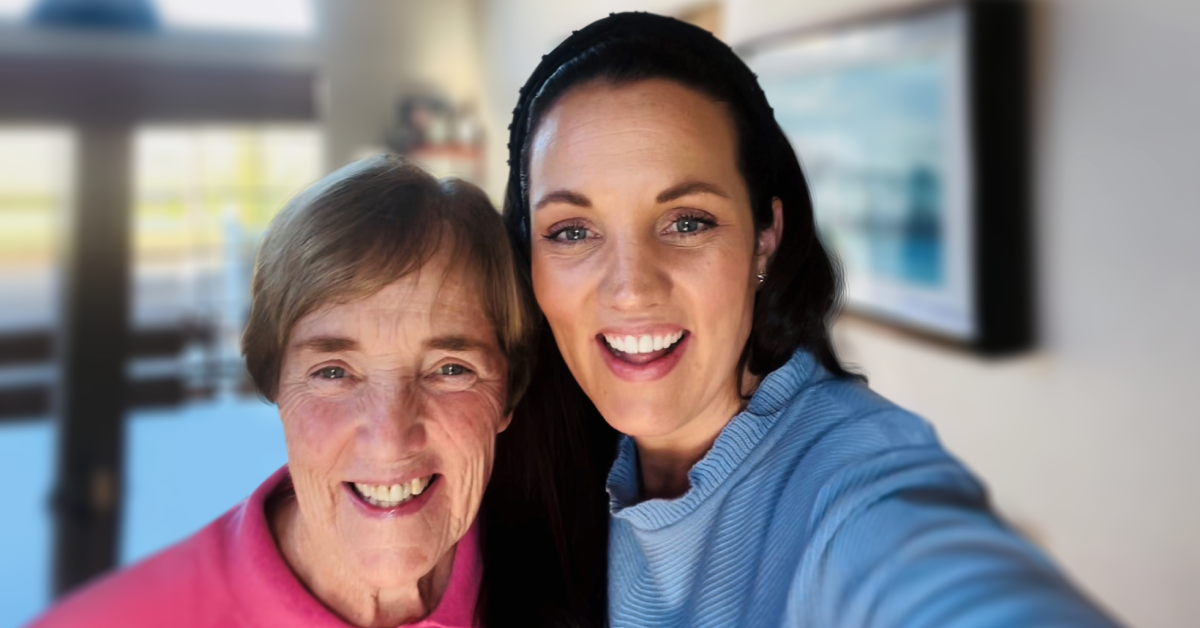
Emily and Marilyn Quinlan; Photo Credit: Emily Quinlan
On Getting Their Start
Marilyn: “I started in 1974 right after I graduated college. This was pre-Anita Hill. My husband and I went to an employment recruiter. He did not graduate and still had a semester left, but they sent him out on all the sales and management positions. [To me], they asked how fast I could type. I said, ‘Not very fast as I've only typed term papers.’ And they said, ‘That's okay. Just go over there and type.’ And so I did and I landed a secretary job. I really needed the money because I went to school on a full scholarship and my mom was a single mom so when I went home I had to help her.
“I was a total failure at the job. But I guess I was young enough, and attractive enough, so my boss kept me. He told me what to wear every day, especially when the higher-ups were coming in. [At one point], the harassment got so bad that he called me to meet him at noon in room such and such at the Holiday Inn. But I had no recourse at the time. I couldn't go to HR because back then you would just get fired. So I quit the job and made it my intention that the next job I have will require a college degree. And so I got hired as an underwriter trainee.”
Emily: “[In high school], my mom came home one day and said, ‘We'll pay you $10 an hour if you file paperwork for us.’ My mom was working at Arthur J. Gallagher at the time and they were switching client software management systems so they were hiring high school students to do clerical work. Thankfully I was a quick typer, so they offered me a position in their internship program the following summer. So that was my first step into insurance. I tried personal lines of insurance for a little bit and then I moved into commercial lines and I've been doing commercial lines for the last 13 to 15 years.”
On How the Industry Has Evolved From the 70s
Marilyn: “Thank you Anita Hill, because she knew what she was talking about. [Her case] cleaned up a lot in the workplace in terms of language and just telling jokes. The insurance industry still is male-driven, but back then it was even more so. And I remember even my own husband objecting to that on some level. He was like, ‘We're not going to be able to talk to women at work or compliment them on their dresses.’ And I said, ‘Hey wait. Stop. Do you remember the time when I was harassed?’ He had kind of forgotten about that. So I think it really helped to change the culture.”
On Weaponizing Emotion
Marilyn: “Most of my career I've been the only female producer on the commercial property and casualty side. At one brokerage house, there were two of us. And she'd say, ‘Marilyn, we can never show our true emotions. Like when you lose an account and you want to cry, just go in the stairwell. That's where we go cry.’ I shared that with my manager and he said, ‘You know what Marilyn, the men want to cry too.’
Emily: “So I had worked my way up from the beginning because my mom had shared that the best way to build your career and have longevity with it is to learn every stage and truly learn the industry. I had done that and put in several years at two different firms, being an account manager, an account executive, understanding what products I was selling, what lines of coverage I was selling, and how to sell them to clients and really break down the insurance lingo into everyday lingo. When I wanted to move into a sales role, I was directly told that I cannot be a salesperson because women cry and they can't have that reputation out in the field of a woman pouting or crying when they don't close a sale.”
On (Slow) DEI Progress
Marilyn: “The good news is that when I look at our organization now, our CFO is a woman and more women are starting to move up in the ranks. Are they on boards? Not so much. And truthfully, in terms of DEI, some White women are getting there. But the percentage for anybody of color is so small. At Alliant, we have employee resource groups and they are mentoring each other which is a great way to start.”
On the Value of Male Allyship
Emily: “The management team I have now is all men, but are by far the most supportive people I've ever worked with. So I think it's a little bit of a chip off my shoulder because I don't feel like I have to show up as a different person at work anymore. For example, I started dating my now fiance during COVID and he has three kids so I kind of got a family overnight. And my manager sat down with me about a year into it and he was like, ‘Look, you need to spend more time at home because if you don’t succeed at home with figuring out your new normal and your family unit then you'll never succeed at work. So take the time you need to invest there to make sure you can show up fully at work.’
“And I think, after being told that I would never succeed in sales or that I wouldn't even have the opportunity to, that support just unlocked a floodgate of trust for me. I don't have that invisible armor that I think I used to put on just for being a woman.”
On the Biggest Lessons They’ve Learned from Each Other
Emily: The advice I’ve gotten from my mom is, ‘There are enough hours in the day to get the most important things done.’ So when you're feeling just super overwhelmed, take a minute and repeat that sentence two, three, or however many times it takes for you to calm down your anxiety. I find myself saying that mantra sometimes at work, sometimes repeating it to the people on my team, and sometimes looking around my house and thinking, ‘It looks like a tornado came through here, but you know what, there are enough hours in the day to get what we need done.’”
Marilyn: “Emily is constantly giving me advice. I tend to be impatient, especially when I'm negotiating on behalf of my nonprofits with underwriters and trying to get them down in price or broaden the coverage, and I will maybe be more direct than I should. And Emily will say, ‘Mom, maybe approach it this way. Or, maybe soften your tone because maybe that person is having a bad day.’ So she's constantly giving me a different perspective.”
On Their Hope for the Next Generation of Women
Marilyn: “I think we're in total agreement on this: As women don't compete with each other — amplify each other. When I was a stay-at-home mom and played a lot of tennis and did leadership work on educational boards, the stay-at-home moms were angry at the working moms because they were like, ‘Oh, they don't have enough time to help us out at school or whatever.’ And then when I became a working mom again and was back on the other side, the working moms were like, ‘Oh, stay-at-home moms are riding around in their tennis skirts all day. They should do more.’ But why don't we just trust that everybody is making the best decision for their family, whether they're staying at home or working? ”
Emily: “You get so much further when you collaborate, strategize, and embrace different opinions. Sometimes it’s as if we're vying for one seat at the table, and there can only be one woman there. But why do we have that mindset? Why do we have to step on each other to get there? Why can't we all have a seat at the table, or just build a bigger table there? I wish we would learn to amplify each other more. And I do have a lot of hope for Gen Z. I think they're very good at embracing who someone is at each stage of life. But the advice I would tell anyone younger is just don't compete. There's enough business for everyone out there and you're going to get so much further if you collaborate with each other.”
On Finding Their Network
Emily: “I started seeing more about Chief in 2020 after the world pivoted due to COVID. I went from traveling 80% of the time for work to being at home. I found myself craving connection, while still having the desire to build my career and further my personal goals. Chief almost seemed too good to be true at first as it checked every box of what I was looking for. I eventually decided to interview and gather more information directly and was immediately addicted to the community. I joined in early 2021 and jumped right in.
“Less than six months into my membership I was telling my mom how this is something she would also find invaluable as it is something she spoke of always wanting – a network of women who understand the struggle of having a strong and demanding career, climbing the ladder without much relatable mentorship, women who can relate to the work/life balance and how that ‘balance’ is an ever-changing target. On top of all of this, there was the small core group that went from being strangers to confidants all through zoom.”
Marilyn: “I joined Chief after listening to Emily rave about the benefits. She said she had found her ‘tribe.’ I have a few women’s groups that definitely feed my soul but I have never had a group who was involved in business. I literally can’t say enough about what the experience has meant for me. After all these years, I have found my tribe of driven intellects that are so creative and enterprising! My career has greatly been enhanced through my core group and all of the opportunities to learn. As I develop version two of me, I find great direction through the groups I belong to in Chief. I am incredibly lucky to have found Chief and all of the wonderful members!”
*Note: This interview has been edited and condensed for clarity.
